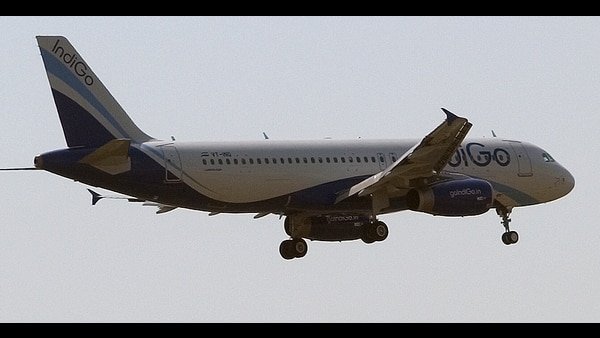For IndiGo, it is smooth sailing yet even as competition heats up

India’s aviation industry has managed a gradual comeback after being battered by the coronavirus pandemic. More and more fliers are taking to the skies on a daily basis. According to ICICI Securities, average daily passenger count so far in April stands at 422,000. This compares to an average daily of 418,000 seen in the March quarter (Q4FY23), they said.
With demand rebounding, competition has also intensified. Financial year 2023 saw the entry of a new airline, Akasa Air, and the merger announcement of Vistara with Air India. While Akasa is yet to fully spread its wings, the Air India group held a market share of nearly 25% in February, according to the Directorate General of Civil Aviation.
Not only that, Air India, last week, announced the conclusion of the first phase of Vihaan.AI. Recall that after the Tata group took over Air India, they had unveiled Vihaan.AI – a detailed five-year transformational roadmap to grow its network and fleet, and improve customer experience. The company aims to secure 30% domestic market share in the next five years.
With the conclusion of phase 1 of the programme, Air India has addressed legacy issues of the airline. Key achievements include signing the largest ever order for 470 aircraft. It will now move on to phase 2, which focuses on developing platforms, processes and systems. This phase, called ‘take off,’ will also see the consolidation of Air Asia India and Air Asia Express.
Against this backdrop, investors in InterGlobe Aviation Ltd would do well to track the competitive landscape. InterGlobe runs IndiGo, India’s largest domestic carrier by market share. However, a meaningful impact from competition would play out in the long run. IndiGo’s market share in February stood at 56%.
IndiGo is currently well positioned, and analysts expect the airline to see a strong March quarter (Q4FY23). While yield would witness seasonal impact sequentially, it is expected to remain healthy. Yield is a measure of pricing.
Analysts at Motilal Oswal Financial Services expect IndiGo to clock yield of ₹4.8 in Q4. “According to our database, average fare prices were down 18% quarter-on-quarter but up 26% year-on-year,” they added. IndiGo’s yield in Q3 stood at ₹5.37.
Also, earnings would benefit from a drop in fuel costs, which forms a significant chunk of operating expenses. Analysts at ICICI Securities note that average aviation turbine fuel cost was down 8.6% sequentially in Q4. IndiGo is expected to report a net profit for the March ended quarter. The airline made a loss of about ₹1,682 crore in Q4FY22.
To be sure, given rising competition, it remains to be seen if healthy yields sustain. Shares of IndiGo are down nearly 14% from their 52-week highs of ₹2,180 apiece seen in February.
Know your inner investor
Do you have the nerves of steel or do you get insomniac over your investments? Let’s define your investment approach.
Take the test
Download Finplay News App to get Daily Market Updates.
More
Less
